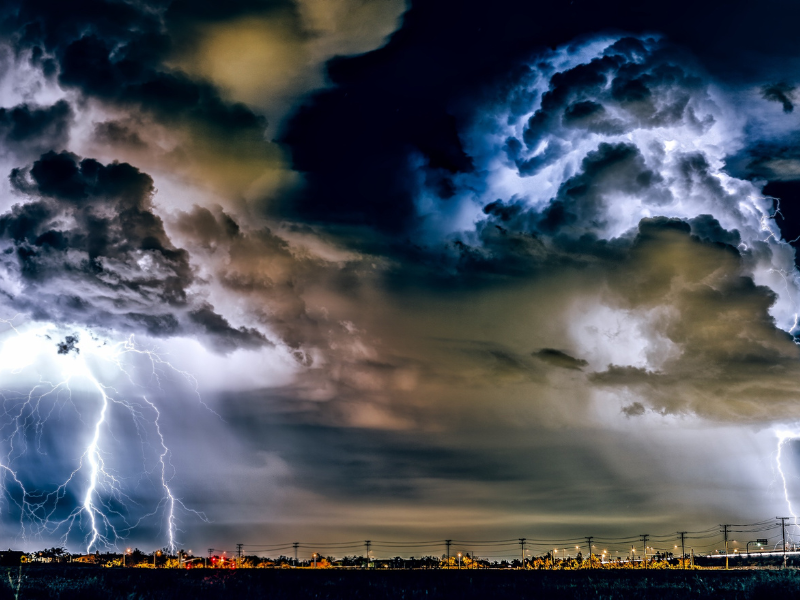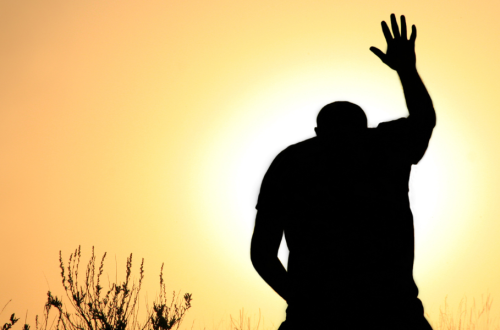
Seeking God’s Strength
I was working through a prayer using the phone app YouVersion, and this verse showed up: Search for the Lord and for his strength; continually seek him. 1 Chronicles 16:11 (NLT)
It stopped me in my tracks, and I can’t completely explain why. It isn’t a new concept, that God is strong and that strength can be mine. It’s not a new idea that I need to seek God. So what hit and made me read this verse over and over?
I didn’t stop there. I moved from my phone to my computer, and I looked up the verse on BibleGateway.com, my go-to source when I want to see a verse in many translations. Here are a few of them:
Seek the Lord and his strength; seek his presence continually! (ESV) Depend on the Lord for strength. Always go to him for help. (ERV) Seek the Lord; yes, seek his strength And seek his face untiringly. (TLB) Rely on the mighty Lord; constantly seek his face. (NABRE) Look to the Lord and his strength; seek his face always. (NIV)
I still wasn’t sure why this verse mattered. What was it about today, in my life, that the concept of seeking God’s strength hit a chord? And it was that phrase that stood out—seeking God’s strength.
Bigger Picture
So I backed out and looked at the big picture. What is the context of this verse? Maybe that would help.
This verse is written by David—no surprise, as I seem to be drawn to the words of David. For some reason, God has twined my heart with the words of David for a while now, and God uses this ancient king to speak to me time and again. When I found this verse, I had no idea David had penned it, but It wasn’t surprising that he did.
The events are like this: David is finally king over all of Israel. He is bringing the Ark into the city and pitching it in the tent created for it. If you’ve read any of David’s psalms, you already understand David’s feelings toward the tabernacle and the ark. They were the very presence of God. To have them in one’s city was having God there, looking over them. This was the day that he felt he had arrived, the day he knew without a shadow of a doubt that God’s promises for him were true.
Remember what David had endured to get here: anointed as a boy, he then waited, and nothing happened. He didn’t suddenly become important or gain a throne. No, he went back to the fields. Then he killed a giant, became part of Saul’s entourage, joined Saul’s army, became well known, became Saul’s enemy, fled for his life, hid in caves, lost his best friend, became king over part of the promised kingdom, and then, finally, became king over Israel. His anointing years ago had come to fruition, but it sure wasn’t easy.
But today was the day. A few verses before this is the well-known moment when David’s wife Michal looks down at her husband, the king, dancing and rejoicing over the ark and despises him. I assume David had lost kingly dignity in that moment and had given way to pure joy.
Yes, this was a party, a parade, the most exciting event in David’s life, when God’s promises to a young shepherd were truly brought to completion.
Zoom back from the party
So, back to the verse. 1 Chronicles 16:8-36 is a song David gave to Asaph to sing as praise to the Lord. The implication is that this song would be sung often, maybe daily. This holiday, when the ark arrives, marks the first day the entire system of tabernacle worship during David’s reign is being set up, and music and praise and songs were part of it, a constant part of it. Today was this song’s debut.
The song is too long to go over here, but I thought I’d snag a few of the verbs. This is a song of praise from the people to God, and it includes commands like give praise, sing, glory, rejoice, seek, and remember. Then there is a section which specifically spells out things to remember in a recollection of what God has done for Israel. Finally we get back to our action verbs: ascribe glory, sing, give thanks, tremble, declare his glory, and worship.
How did the people respond? “Amen” and “Praise the Lord” (v. 36)
After this, regular daily sacrifices started at the tabernacle, as did daily praise and the playing of trumpets and cymbals. And seeking God’s strength became a fairly regular part of David’s kingship. Did he do it perfectly? Or course not. But when he failed he tried again, knowing God’s strength was his strength and nothing else.
Some attitudes
Okay, so the context is set. This is a national holiday, a day of praise and rejoicing. An old promise has come to fruition. A nation fighting both inner and outside enemies was having a moment of peace. The nation was united under one king, and that king had a few things to say in a song, reminders for the people about how to praise God always.
And one of them was to seek God and his strength and his presence.
Seek God.
Seek his strength.
Seek his presence.
Depend on God.
Depend on his strength.
Search for him. Rely on him.
Look to him. Look for him. Pursue him.
And the same for his strength.
True confessions—I’ve just come out from under a couple difficult months. I suffered panic attacks, those lovely little events where the body is convinced, fully and completely convinced, that death is imminent, that everything is bad and nothing will help. It is the most powerless feeling in the world, because I knew it wasn’t true, that what I was experiencing wasn’t what my body told me it was, but wow, in the depths that didn’t matter.
I didn’t feel strong.
I did call to God. Constantly. I looked for his presence. Sought his face. Called from the pit and reached out my hand from the depths.
But I never specifically asked for God’s strength. I never thought about just how strong God is and how far He’s willing to go to rescue me.

A quick visit to the Psalms
That brings us to Psalm 18. This is another Davidic psalm, and it was penned about the events preceding 1 Chronicles 16, that moment when David was delivered from all his enemies and the hand of Saul.
Again, this is long, so I’m not going to quote it all here. But I want to share some of David’s imagery concerning God’s role in David’s ascension to the throne. Catch this, verses 7-14:
The earth trembled and quaked,
and the foundations of the mountains shook;
they trembled because he was angry.
Smoke rose from his nostrils;
consuming fire came from his mouth,
burning coals blazed out of it.
He parted the heavens and came down;
dark clouds were under his feet.
He mounted the cherubim and flew;
he soared on the wings of the wind.
He made darkness his covering, his canopy around him—
the dark rain clouds of the sky.
Out of the brightness of his presence clouds advanced,
with hailstones and bolts of lightning.
The Lord thundered from heaven;
the voice of the Most High resounded.
He shot his arrows and scattered the enemy,
with great bolts of lightning he routed them.
When God thunders
That’s pretty epic language. THIS is God’s strength. This is what I didn’t tap into in the past few months. In a way, we’re splitting hairs here. I did call for help. I did look to God and rely on him. But I didn’t ever consider my plight so important to God that He would thunder and smolder and burn and take this kind of role in my rescue.
Jesus showed us on the cross just how far God would go to rescue each of us and bring us home. The blood that paid for my rescue will never lose its power, and God will never hesitate to use his strength to fulfill the promise made by that blood to rescue me and you and all of us who are part of that kingdom.
That’s why the verse in Chronicles hit like it did. The strength of God—what other purpose does it serve than to make God’s will happen? And God’s will is always to bring His people home, one step at a time. Through valley, over hilltop, through good and bad times. He will always rout the enemy, because not one of us will be lost. (See this post on Psalm 84 for more about us as pilgrims on our journey home.)
None of us. Those God loves will make it. The entire strength of God is on my side to make sure I make it home.
David had some dark moments along the path, and so will I. So will you. God uses those moments both to train, teach, and strengthen us as well as to condemn our enemies. Nobody hurts God’s people and gets away with it. Sometimes God lets our enemies dig their graves pretty deep before He shoves them into them.
No thing hurts God’s people and gets away with it—the enemy isn’t always human and we know it. God says there will be justice not just for people, but for the land, that he will heal us from whatever crushes us.
Language like Psalm 18 makes it clear we are important to God. David knows he was rescued for Israel, for the nation, and I am part of that nation. I am part of the kingdom. The kingdom, for reasons known only to God, isn’t complete without my citizenship, so the strength that rescued David to be king will also rescue me to be whatever it is God wants me to be in the kingdom.
Bringing it home, sort of
I wish I had some great wrap-up to this post, some final words. I’m not sure what I’ve said here makes a lick of sense, as it’s more about attitude than action.
It’s about calling out with confidence, knowing what God will do for his children.
It’s about calling out with confidence knowing I am one of those children.
It’s about having the strength to endure those long David moments when it seems God is slow and has forgotten his promises, when the enemy seems to be winning and I feel nothing of the power of God and only the power of this dark world.
Because the kingdom of God is its people, each one of us vital, so the promises for that kingdom—those are ours. Mine. Yours. And God will not let any one of us go.
Jesus showed us that on the cross, just how far God would go to rescue each of us and bring us home. The blood that paid for my rescue will never lose its power, and God will never hesitate to use His strength to fulfill the promise made by that blood to rescue me and you and all of us who are part of that kingdom.
So I can look to the skies, knowing when the world condemns itself long enough, when the lessons are learned and God’s purposes are fulfilled, He will come, burning with anger, the Hero, the Rescuer, and He will lift me from the pit. Always.
Always.
I will always take the next step toward home, until that final day when the gates will open to me, and I will fall into God’s arms complete and renewed forevermore.




